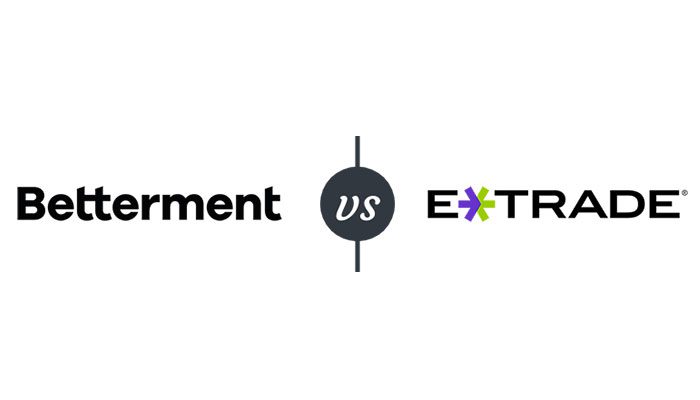What is a Robo-Advisor?
A Robo-Advisor is a digital platform that offers automated, algorithm-based financial planning services by utilizing artificial intelligence, either with or without human intervention.
Yep, it’s what the name implies – a “robot” financial planning advisor.
Potential clients log onto the portal and are presented with a detailed list of questions required to answer online. The questions aim to assess the clients’ financial needs, goals, appetite or aversion to risk, and the investment period the client wishes to adopt.
The “robot” then assimilates the answers and offers financial advice along with the automatic investment of the client assets to achieve their investment goals. Sounds far-fetched and impossible? Since 2008 Robo-Advisors have been gaining ground. Betterment currently has $32 Billion under asset management. Yes, Robo-Advisors are here to stay.
What are the main benefits of using Robo-Advisors?
Cost
The main benefit is that Robo-Advisors offer a cost-effective alternative to the human, financial broker model.
For example, most Robo-Advisors charge an annual flat fee of 0.2% to 0.5% of the client’s total account balance. This is much more affordable than a broker fee of 1% to 2% for a human broker.
Lower capital cost
Robo-Advisors require from zero to $5 000 as a minimum amount to start off with. On the other hand, human advisors typically require over $100 000, excluding thousands of potential investors who just don’t have that kind of disposable capital available.
Accessibility
Robo-Advisors are available 24/7, provided there is access to the internet.
Efficiency
Nothing can beat the efficiency of the automated processes utilized by Robo-Advisors. Everything happens almost instantaneously and with no waiting periods. Therefore, no human intervention makes for much greater efficiency.
Betterment vs E-Trade – a comparison
Betterment and E-trade are Robo-Advisers, but they offer very different niche products. So let’s look at their offerings and see whether you should adopt either of them.
Definitions
What is Betterment?
For a previous review on Betterment, click here.
Betterment offers a simple and easy-to-use front end aimed at people looking to set up financial goals such as buying their very first home.
With set fees and a non-cluttered approach, Betterment has been disruptive from the start and was one of the pioneers. The goal planning and tracking functionality are top-notch.
OPEN A BETTERMENT ACCOUNT
What is E-Trade?
E-trade is not a goal-driven approach. Instead, you create a single pot of money used to fund all of your goals.
Clients get access to research and various tools, but the focus is not managing and tracking several set goals.
It is more about defining a single goal and then accessing progress reports as you strive to achieve that goal.
Top Offerings
Betterment Offering
As a standard feature at a rate of 0.25% charged as an annual fee, there is no full-time access to a human advisor.
However, if you are prepared to increase the fee to 0.40%, you get full-time access to a human advisor.
Clients get access to several financial planning tools and detailed reports and analyses of all current investments which the client has.
Betterment provides excellent in-platform external accounts analysis as part of the core features, illustrating the focus on goal planning.
There is an emphasis on goal flexibility, so portfolio changes are also catered for.
E-Trade Offering
Access to human advisors is standard and does not cost extra. In addition, telephonic support, as well as human appointments at branches, is available.
The core portfolio provides a neat, socially responsible investment option essential for some clients through the SRI and Smart Beta products.
E-trade has been commended for its easy-to-read digital dashboard on its website and phone application.
Clients can access secured loans against a balance over $50 000, but the interest charged is relatively high.
One criticism of the E-Trade system is a slight lack of transparency – no adjustments are possible to the ETFs held, and you can’t see the portfolio’s exact nature until the account is funded.
All about the money – fees and minimums
Betterment fees
The Digital Plan costs 0.2% with no minimum balance required. No human advisory service is offered for this package.
Personalized advice is available on the platform, and tax-saving strategies and automatic rebalancing.
The next step up is the Premium plan which attracts a 0.45% fee but does come with human interaction. Importantly this also requires a minimum balance of $100 000.
The premium plan also offers advice on assets held outside of Betterment.
Financial guidance is provided on essential events such as having kids or getting married.
The premium plan does not attract additional trading fees. As a result, ETFs are low-cost as they are with all Robo-advisors.
E-Trade Fees
The E-Trade Core Portfolio charges 0.3% of assets under management, slightly higher than the Betterment Digital Package, but this includes access to human interaction, which is a plus.
In order to cover the charges, the portfolios are designed to hold about 1% cash
No additional trading fees are charged, and ETFs are low-cost but additional.
Betterment Minimums
Betterment has a zero minimum deposit which makes it a class leader. This aims to entice beginner investors who are not then dissuaded due to minimum deposits they often do not have access to.
E-trade Minimums
E-Trade has a respectable minimum deposit of $500 which is quite commendable. However, compared to Betterment, with zero minimum required, it battles to compete in this area.
Although the amount is relatively low, even this amount can put off new investors who generally show a reluctance to tie up amounts they do not necessarily have access to.
Fractional Trading and Cryptocurrencies
Betterment Fractional Trading and Cryptocurrencies
Betterment’s clients can deal in fractional shares – an excellent offering for new investors. In offering this, investors with limited budgets can still buy blue-chip shares, which would often be beyond their purchasing power.
At the time of writing, Betterment does not currently offer trading in cryptocurrency but has indicated that this is something they are looking into.
E-Trading Fractional Trading and Cryptocurrencies
E-Trade does not offer fractional trading. This presents a barrier to entry to investors who do not have access to the significant amounts of capital required to buy some of the higher value blue-chip shares.
Although E-Trade offers a wide range of investments, including some crypto-related assets such as Bitcoin futures, it does not provide cryptocurrency trading on its platform.
Automation
Betterment Automation
One of the considerable strengths of Betterment is the simplicity of its approach through automation. New clients simply fill out a form in which they indicate their current income, their intended goals of investment, and their risk tolerance. Betterment then creates an essential portfolio that accommodates all of these factors. So, the system takes care of newbies with little technical investing knowledge.
Further customization of the basic portfolio is possible for users who wish to do this.
E-Trade Automation
E-Trade is not as user-friendly or automated and can be slightly intimidating for new investors.
Pros and cons
Betterment Pros
Betterment offers an automated investment service with meager management fees and even allows for tax harvesting.
E-Trade Pros
E-Trade offers a wide range of investments, provides excellent support, and provides extensive research material.
Betterment Cons
Betterment offers no real estate, allows for minimal portfolio customization and limited compatibility with external accounts.
E-Trade Cons
Higher fees are charged, options trading can be costly, no fractional shares are offered.
Who wins out?
Although E-Trade and Betterment offer excellent services, we feel that Betterment has the edge due to its lower fees, fractional share options, and the fact that it has no requirement for a minimum. Also, the simplicity and ease of use make it the obvious choice.
Related Betterment Comparison Posts:
- Betterment vs Wealthfront
- Betterment vs Acorns
- Betterment vs Vanguard
- Betterment vs Fidelity
- Betterment vs Robinhood
- M1 Finance vs Betterment
- Betterment vs Sofi
- Betterment vs Stash
- Betterment vs Charles Schwab
- Betterment vs Personal Capital
- Betterment vs Ellevest
- Betterment vs ETrade
- Betterment vs Wealthsimple



































